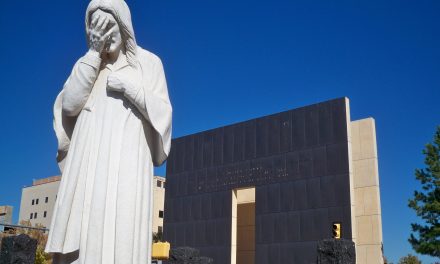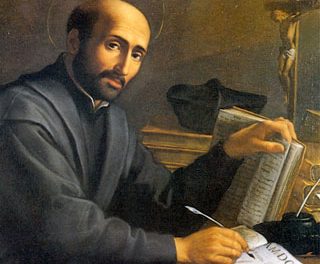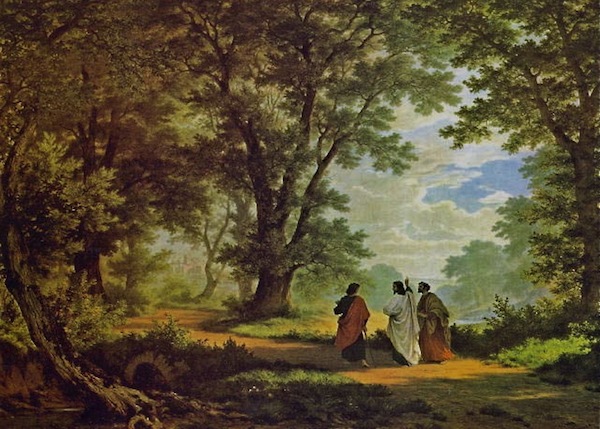Lectionary: 68
Jonah 3:1-5, 10
Psalm 25: 4-9
I Corinthians 7:29-31
Mark 1:14-20
The way we measure time is extremely important. We orient the various events in our lives in relation to the seasons and cycles of which they are a part. These seasons and cycles form the backdrop to the various routines and tasks we perform on a daily basis. We know what we are doing in great measure because we know how it fits into some greater timeframe that is itself the measure of some larger project or responsibility. For parents and teachers, the school year provides a firm timeframe against which one’s day-to-day actions find a place. Likewise for Catholics, the liturgical calendar and lectionary cycle provides a larger context within which one can fit the particular readings and prayers one hears at Mass. Just as there is a certain rhythm to each day, there is a certain rhythm to the year, and a typical rhythm to the seasons of a human life. And there is a rhythm to the liturgical year which explicitly echoes the rhythm of Christ’s life, just as the rhythm of Christ’s life in turn echoes the whole history of Israel. Some moments are preparations for other moments, and the succession of these moments has some purposeful direction, some overall meaning.
It can be hard to detect the rhythm of the yearly seasons in mid-January. Christmas is definitively past, Lent is still a good month away, and even the Super Bowl is several weeks in the distance. I’ve noticed many of neighbors putting up their Valentine’s decorations already: perhaps they are genuinely excited for this secular celebration of eros, but perhaps they may also feel the need for some sort of temporal reference point in the wake of the Christmas season. And then once Valentine’s Day is past, those same neighbors put out the St. Patrick’s Day regalia. I can understand: they just can’t tolerate the cold, the dark, the slush, the regular winter routine without some festive occasion to look forward to.
To say it is natural for human beings to act in light of an anticipation of the future is to utter something that is somewhere between an understatement and a tautology. That is to a great extent what makes us human: we can foresee and anticipate the future. It is a blessing and a curse: we can receive direction and inspiration from what we anticipate, enduring many present hardships patiently for the sake of what is to come; or we can find ourselves paralyzed with fear or discouragement if what we foresee is something that would negate the meaning of any of our actions. God made us this way, and thus He also gave us a way of structuring our time. It is the primordial gift in the first chapter of Genesis: we are given a way to experience time in an ordered and intelligible way. Indeed, it is only in light of this greater structure of intelligibility that the significance of our existence as creatures unfolds: we are the culmination of creation, made to embody within the world the order and intelligibility of the act of creation itself. We all find the highest meaning of our actions to be their participation in some larger history, and as Christians the greatest significance our actions can have is that they play their part in God’s providential plan for the world.
Yet cooperating with God’s purposes does not necessarily mean that we perfectly understand and anticipate the way our actions will unfold. In fact, we rarely if ever know the precise shape of the destination to which God is leading us. (That is after all why the Psalmist proclaims God’s word to be a lamp unto my feet, because it illuminates only the next step or two.) As disciples of Jesus, our prayer should not be focused on what will happen months and years from now, but should rather seek after the grace to do what is being asked of us this very moment. For living within God’s time means surrendering the various ways in which we impose meaning upon our actions. We structure our time according to stories and templates that are largely pre-determined: first it’s Christmas, then it’s Valentine’s Day, then it’s St. Patrick’s Day, and then Easter. The days get longer and warmer until it’s summertime and school gets out. I understand this story; I’ve lived through it before, it’s familiar and comfortable to me. But what if God is asking me to do something that does not conform to the story already in place which gives structures to my daily life? It seems to me like that is the drama of the first reading for this Sunday.
The Lord asks Jonah to go to Nineveh and announce a message of judgment, so as to give the Ninevites an opportunity for repentance. He refuses, resists, runs away, and only after enduring his own punishment does he comply. He is reluctant and resentful; he never signs on to what God asks him to do, because it conflicts with the story he has in place. The brutal Assyrians of Nineveh are evil, and should suffer permanent alienation from God. To give them an opportunity to reconcile with God even in the slightest would pose a threat to the order by which Jonah makes sense of his life and his actions. That is why even at the end, after experiencing a ridiculous amount of success in his efforts (is there any other prophet whose message is received so quickly and so completely?), he sulks under a tree and refuses to do anything. Nothing makes sense to him anymore. And yet to us the reader, it is clear that God has been preparing the people of Nineveh for this moment. They are a heap of dry kindling, and Jonah provides the small spark that starts an enormous blaze. Jonah refuses to give up his way of seeing things, and so he is unable to enjoy playing his part in God’s story.
What message does Jonah need to hear in order to break free from the constraints he places upon himself? It seems to me that the second reading from St. Paul’s First Letter to the Corinthians might be a good place to start. “I tell you, brothers and sisters, the time is running out. From now on, let those having wives act as not having them, those weeping as not weeping, those rejoicing as not rejoicing, those buying as not owning, those using the world as not using it fully. For the world in its present form is passing away.” I don’t think that means that time itself is about to end so much as it means that we need to abandon our way of making sense of time. Notice the elements involved: marriage, grief, joy, ownership, stewardship. These are the typical points of reference for taking stock of our own life stories. They are what we look to when we seek to know “what time it is” in our lives.
But we cannot assume that God’s time lines up with ours. We cannot assume that the stories by which we make sense of our own lives are the stories God has in mind for us, in which we can realize our deepest meaning and beauty. The gospel reading makes this point with striking simplicity: “Jesus came to Galilee proclaiming the gospel of God: ‘This is the time of fulfillment. The kingdom of God is at hand.’” And ‘as he passed by the Sea of Galilee, he saw Simon and his brother Andrew casting their nets into the sea… Jesus said to them, ‘Come after me, and I will make you fishers of men.’ Then they abandoned their nets and followed him.” The response here is as immediate and startling as the Ninevites’: one moment they are fishing, and the next they are following Jesus.
The disciples don’t know what they’re getting into, as the rest of Mark makes all too clear. Yet they are willing to leave their own story and join another’s. They are willing to leave their own time in order to learn to live in God’s time. For that is essentially what the Kingdom of God is: the true timeframe of history, the true timeframe of creation itself. To make this adjustment from our modes of keeping time to God’s is the task of a lifetime, yet it is—and always has been—the essential mark of God’s people. As the history of Israel demonstrates, living in God’s time makes one distinctive, and often renders one at odds with the world’s way of marking time. But only by living in God’s time can one convey to the world the fullness of the love that is the ultimate meaning of all that is.





